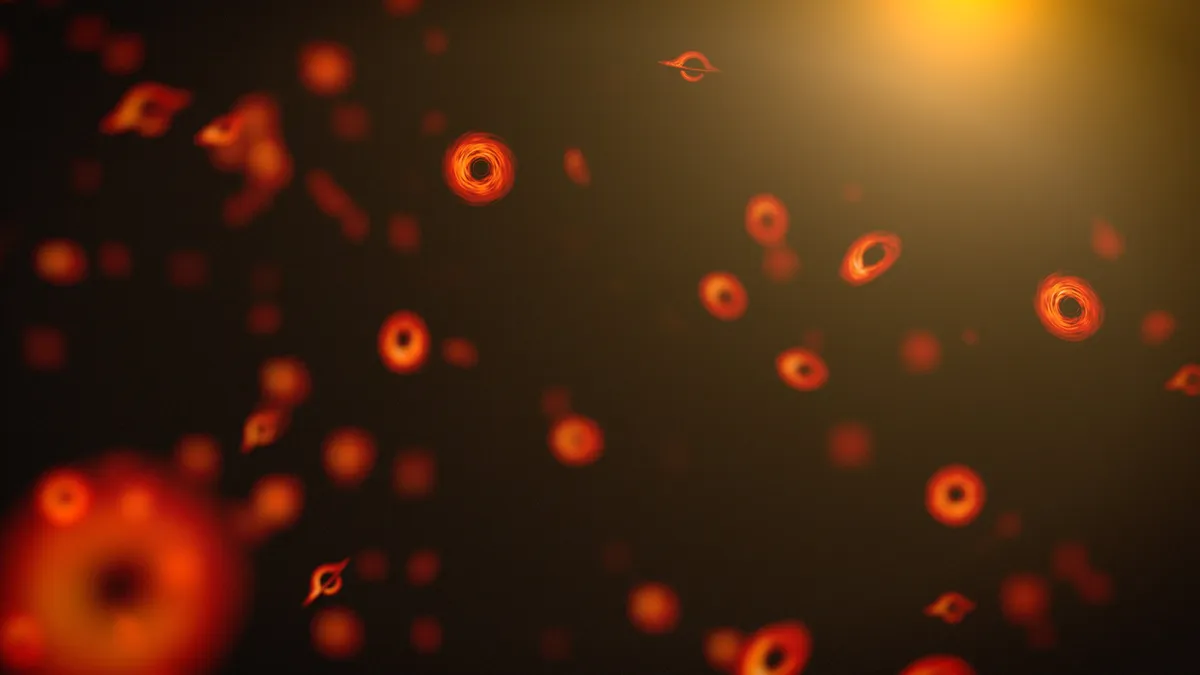
For decades, physicists have theorized that black holes meet a spectacular end with explosive events, occurring at most once every 100,000 years. Recent groundbreaking research from the University of Massachusetts Amherst challenges this assumption, suggesting a staggering probability of over 90% for witnessing one of these black-hole explosions within the next decade. This research, published in Physical Review Letters, indicates that our existing fleet of space and ground-based telescopes could potentially capture this extraordinary occurrence.
The anticipated explosion from a black hole would serve as compelling evidence for the existence of primordial black holes (PBHs), a theoretical type of black hole that could have formed within less than a second after the Big Bang approximately 13.8 billion years ago. Observing such an event would not only confirm the existence of PBHs but also provide a comprehensive catalog of all known and unknown subatomic particles in the universe. This catalog would include particles we are familiar with, like electrons, quarks, and Higgs bosons, as well as hypothetical particles, such as those related to dark matter.
Black holes are a crucial component of our understanding of the universe. A typical black hole forms when a massive star exhausts its fuel, leading to a catastrophic implosion and a resulting region of spacetime with gravitational forces so strong that nothing can escape, not even light. These black holes are incredibly dense and generally stable.
However, Stephen Hawking introduced the concept of primordial black holes in 1970, positing that they could arise from the universe's conditions shortly after the Big Bang. While traditional black holes are immensely dense, PBHs can be significantly lighter than their more massive counterparts. Hawking's theories also suggest that black holes possess a temperature and can emit particles through a process known as Hawking radiation, if they reach a sufficient heat level. The lighter a black hole is, the hotter it becomes, resulting in increased particle emissions until a dramatic explosion occurs.
According to Andrea Thamm, co-author and assistant professor of physics at UMass Amherst, the Hawking radiation emitted by these primordial black holes is detectable by our telescopes. Despite the theoretical framework established since Hawking's time, direct observations of PBHs have yet to be made. Joaquim Iguaz Juan, a postdoctoral researcher at UMass Amherst, emphasizes that with our current technology, detecting Hawking radiation from an exploding PBH is entirely feasible.
Historically, physicists believed the likelihood of observing an exploding PBH was extremely slim. However, Iguaz Juan and his team are challenging these long-held assumptions. They propose a new hypothesis: prepare for an imminent explosion. Aidan Symons, a co-author and graduate student at UMass Amherst, asserts a 90% chance of witnessing an exploding PBH within the next decade.
The research team delves into a dark-QED toy model, which mimics the conventional electric force but incorporates a hypothesized heavy version of the electron, referred to as a dark electron. They re-examine the electrical charge of black holes, challenging the assumption that PBHs are electrically neutral. Michael Baker, another co-author and assistant professor, explains that if a primordial black hole forms with a small dark electric charge, it may stabilize temporarily before ultimately exploding.
The findings suggest that instead of the previously assumed timeframe of once every 100,000 years, we could potentially witness a PBH explosion every 10 years. While Baker clarifies that the team is not definitively claiming an explosion will occur this decade, they are optimistic about the 90% chance that it could happen. Given our current technological capabilities, readiness to observe these explosions is crucial.
Moreover, Iguaz Juan highlights that this event would mark the first direct observation of both Hawking radiation and a primordial black hole, providing us with a definitive record of every particle that constitutes the universe. Such a discovery would not only revolutionize our understanding of physics but also help to rewrite the history of the universe itself.